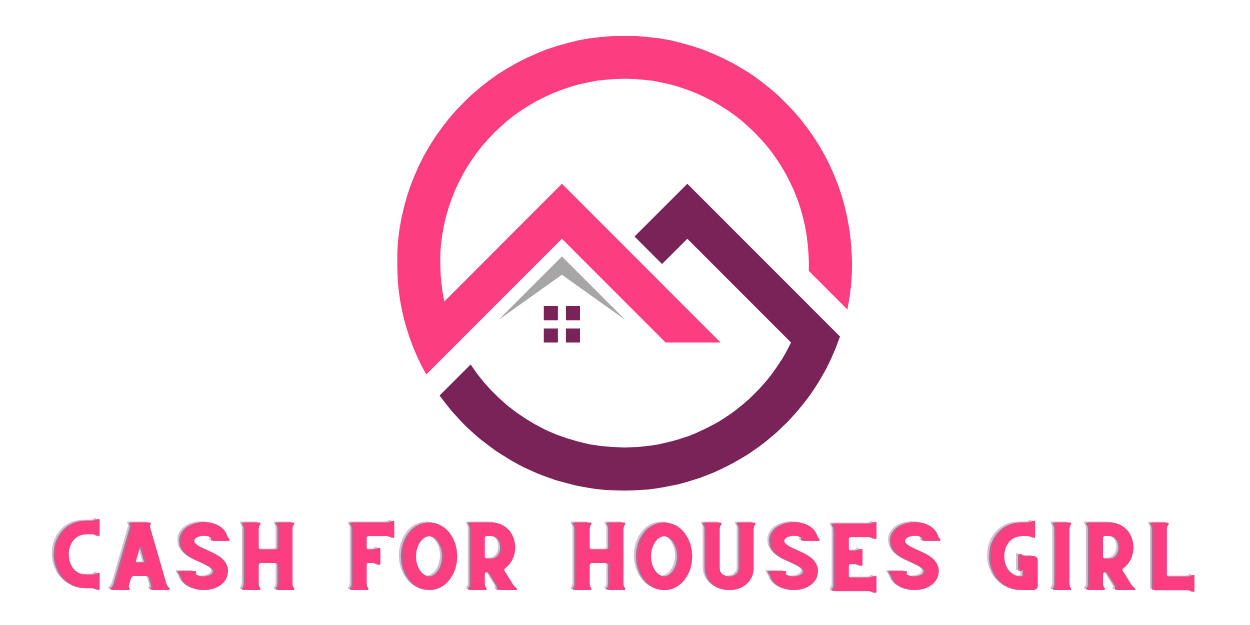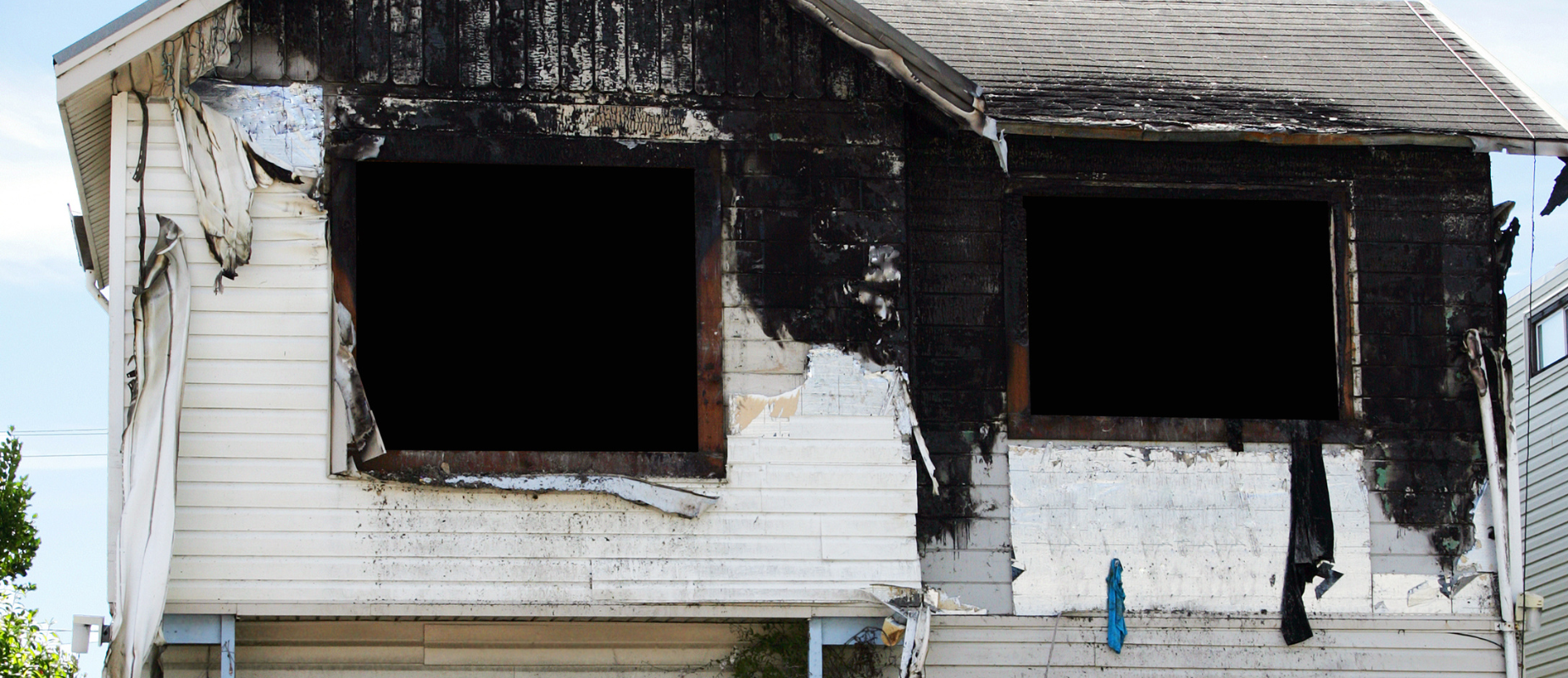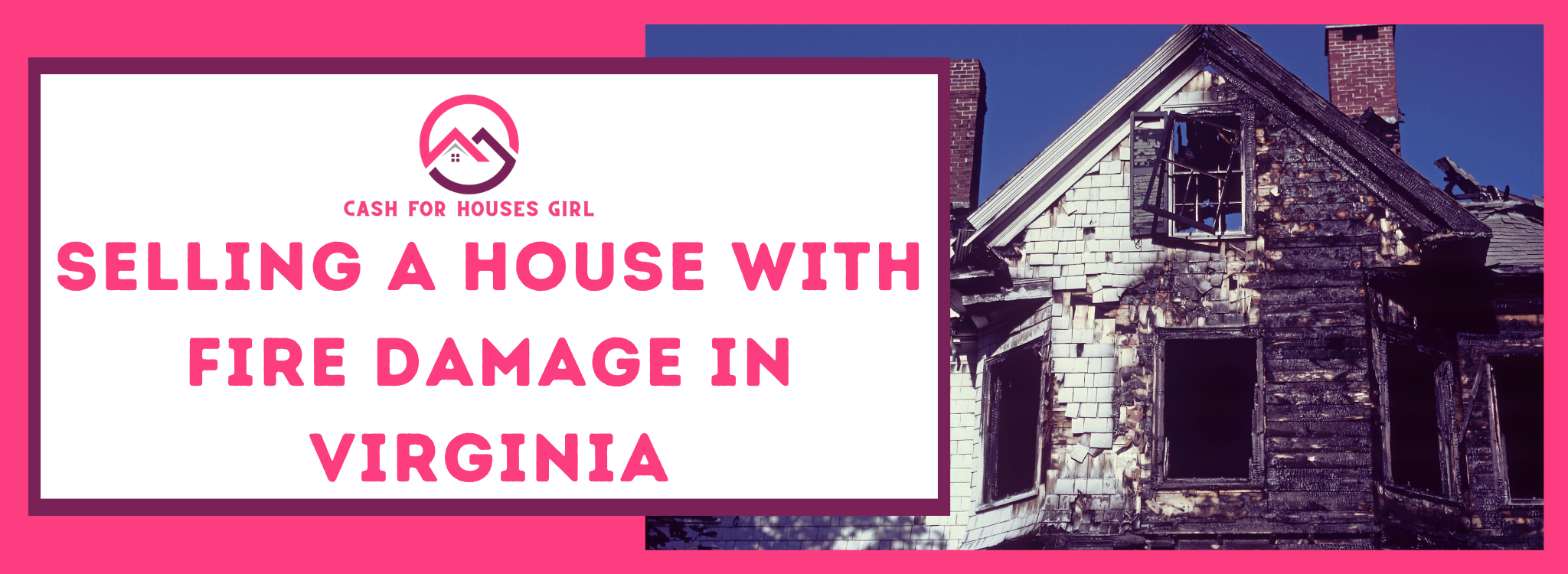
Selling A Fire Damaged Property In Virginia
Selling a house with fire damage is difficult, especially in Virginia, where careful planning is needed. Before selling, it’s important to understand how fire damage affects your Virginia house and the selling process. However, fire-damaged homes can be sold despite their appearance.
First, repairing or selling a fire-damaged home might affect its value and speed. Even though a Virginia home is in bad shape, buyers seeking a deal may buy it. Selling the house as is can avoid costly repairs that may not boost resale value.
Selling a fire-damaged home requires targeting the correct audience. Fire-damaged homes are often bought for investment. These people see promise in the home despite the destruction. Selling your house is easier with an experienced real estate professional who can link you with these purchasers.
Virginia’s housing market is diverse, so selling a fire-damaged house may need creativity. Highlight unaffected parts of your Virginia house and suggest improvements or fresh beginnings. Virginia buyers may be interested in improvements, making fire-damaged property sales easier.
Local regulations must also be followed. Virginia requires sellers of fire-damaged homes to report the property’s condition, including fire damage. Full honesty when selling a Virginia residence develops trust and protects you legally.
House fires can be devastating, but selling a burned house is possible. Stress how easy and beneficial it is to sell a fire-damaged Virginia house. Use local fire-damaged property real estate professionals.
Finally, a team experienced in Virginia’s house market and selling process would be helpful. They can provide Virginia-specific market information and tactics to speed closing timeframes. Virginia homeowners can sell their homes after fire damage. House fires and damage can hinder sales, but they don’t always stop them. With the correct technique and knowledge of the Virginia market, you may sell a fire-damaged home and move forward confidently, knowing all elements have been addressed.
How Fire Damages Affect Your Home And Sale Options
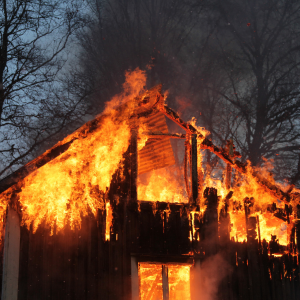
Selling a fire-damaged Virginia house requires understanding how fire damage affects your property and sale alternatives. A house fire can harm your home’s structure and appearance, requiring repairs before selling. The value of fire-damaged homes might change due to substantial structural damage to walls, roofs, and foundations. Sellers often have to decide whether to fix or sell the house as-is.
Despite its hurdles, today’s real estate market makes selling a fire-damaged property possible. Some repair the defects before selling the house, but others sell as-is for a rapid sale or lack of cash. Selling a fire-damaged house involves carefully assessing damage and restoring or selling resources. As-is sales of fire-damaged homes attract distressed property investors because they can close quickly. These investors specialize in fire-damaged properties and can provide competitive prices based on market and home conditions.
Virginia homeowners selling fire-damaged homes have several options. The home could be listed with real estate professionals to attract flippers. Other options include selling to cash purchasers specializing in damaged buildings without costly restorations. When selling a fire-damaged Virginia home, contact local real estate investors or companies that buy fire-damaged homes. They might assess the current situation and propose lower-than-market pricing to speed up the transaction. Those with significant damage who cannot fix their home may prefer to sell it as-is.
Consider insurance coverage, work needed to restore fire damage to your house, and the return on investment if you fix it before selling. Remember that market conditions may affect how quickly you can sell a Virginia fire-damaged home. Your damaged property sale’s price and pace depend on local demand. Understanding your home’s fire damage, assessing your resources, and choosing the best sale option will help you reach your financial goals and emergency requirements.
Steps To Sell Your Fire-damaged House As-Is
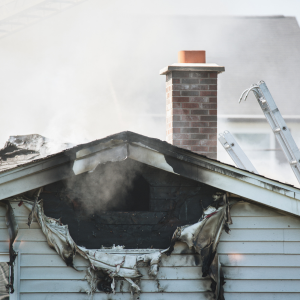
Selling a fire-damaged house as-is might be difficult, but understanding the right measures can make it easier. Start by assessing the state of your fire-damaged home before selling it. Fire damage must be assessed to sell a fire-damaged home. This involves assessing the home fire’s damage and what’s left. A complete appraisal will help you sell a residence in such a state. Buyers need this full picture before making an offer if you’re selling as-is.
Next, prepare to sell a fire-damaged home. Due to the cost of repairs, many fire-damaged homeowners sell their homes as-is. Selling a fire-damaged house as-is requires proper paperwork. Include insurance claims, fire department assessments, and remodeling permits if any upgrades were done. As-is homes may attract bargain-hunters, but they’ll need confirmation of what happened, maintaining openness throughout the transaction.
The choice between cash or traditional sales is important. Cash offers are often valuable for fire-damaged homes because many purchasers want them. With their support, you can sell and transfer property ownership in days or hours. Such a home, especially one with a fire history, may attract fewer buyers, but a cash offer can close the deal quickly. Selling this way is easier because you won’t have to deal with mortgage lenders. Think about how quickly you need the money when selling a fire-damaged residence.
Effectively marketing fire-damaged properties is another stage in selling. Investors wishing to renovate and flip Virginia houses may list them as “as-is condition.” Searching for cash purchasers who understand the hazards of buying a fire-damaged home is crucial. The house’s location and undamaged structures can make it a good investment. In the right market, fire-damaged homes can be profitable. Fire-damaged homes can be sold if you follow these steps.
Why House Fires And Fire Damage Don’t Stop Sales
Fires are scary for homeowners, but they don’t have to ruin a home’s sale. Fire-damaged homes can be sold in Virginia, and purchasers are willing to invest in them due to their many prospects. Fire damage may seem like a major obstacle to property sales. Though traumatic, house fires don’t automatically prevent selling a fire-damaged property. Buyers are willing to make cash offers for fire-damaged homes due to their distinctive charm or insurance payment prospects.
Understanding why house fires and fire damage don’t prevent sales is crucial to selling. Fire-damaged houses appeal to buyers for various reasons, including the potential for a lower price. When marketed properly, these residences can attract bargain hunters and renovators who want to resell later. Investors may be drawn to a damaged home because an insurance settlement can fund repairs or allow the sellers to cut the price.
Virginia’s real estate market is strong; many purchasers want fire-damaged homes. As-is house sales appeal to individuals who prefer a simple approach. Fire-damaged homes attract buyers due to their location and opportunity for renovation. Clever purchasers know they can negotiate better terms despite the stigma of fire damage. Despite the damage, sellers can sell their homes after a house fire.
Selling a fire-damaged house requires highlighting the distinctive features that survived the fire. Emphasizing the home’s intact elements can pique buyers’ curiosity. Additionally, selling a home as-is can speed up the sale. Virginia selling markets are unique, but with the appropriate plan, sellers might find purchasers prepared to overlook fire damage and see the property’s potential. A good cash offer makes selling a fire-damaged home possible.
Not even substantial fire damage can derail a property sale. There are always buyers who see house fires as opportunities. Selling a fire-damaged Virginia property can be profitable if you grasp this dynamic and take the right approach. Highlighting the property’s qualities and being upfront about fire damage will attract purchasers. Selling a house with fire damage is possible with the appropriate technique, even though house fires appear daunting.
Understanding Insurance Coverage For Fire Damage In Virginia
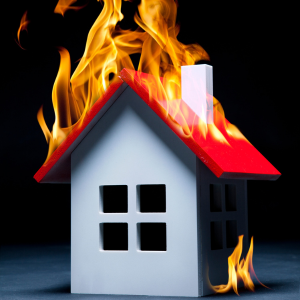
Understanding the complexity of fire damage insurance in Virginia is critical for homes and businesses. When a disastrous fire occurs, the financial consequences can be overwhelming if necessary precautions are not taken. Virginia’s insurance landscape is unique, with state-specific legislation and policies governing how insurers handle fire-related claims. At its most basic, ordinary Virginia homeowner’s and commercial property insurance policies often cover the immediate physical damage caused by fires and the cost of repairs or rebuilding. However, the devil is in the details: plans can differ greatly regarding coverage limits, deductibles, and the specific risks they protect against. Some plans, for example, may restrict coverage for fires caused by electrical difficulties or arson, leaving policyholders liable for the repair costs.
Furthermore, Virginians residing in high-risk fire zones may need additional coverage, as base policies frequently fall short. Business owners confront a much more complex situation, as they must handle commercial fire insurance that protects not only their physical property but also business interruption, lost income, and equipment/inventory loss.
Navigating this complex network of coverage alternatives is critical to ensuring Virginians’ true protection when the unthinkable happens, and fires threaten their most valued properties. By understanding the subtleties of the state’s fire insurance, individuals and businesses can take proactive actions to acquire the comprehensive protection they require.
Marketing Strategies For Selling A Fire Damaged Property In Virginia
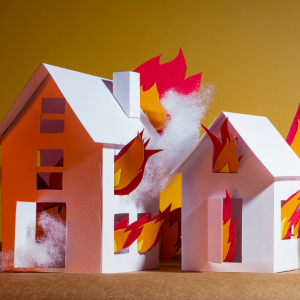
When selling a fire-damaged home in Virginia, creative marketing methods are essential for navigating the specific hurdles and finding the perfect buyer. The first step is to properly examine the amount of the damage and determine what repairs or improvements are required to make the property livable. This thorough analysis will help to inform the pricing approach and set realistic expectations for potential customers.
Next, be open about the property’s past, emphasizing both the damage and any effort done to repair it. This forthright honesty can help create trust with interested parties and avoid unpleasant shocks in the future. Crafting an attractive listing description highlighting the property’s underlying potential and any desirable elements that remain intact can also be an effective method to pique buyers’ interest in taking on a fixer-upper.
Targeting marketing efforts toward investors, contractors, or other buyers with the ability and finances to rebuild a fire-damaged home might also produce potential leads. Finally, being adaptable and willing to negotiate creatively can make a big difference since fire-damaged properties frequently necessitate a more nuanced sales approach to locate the perfect buyer.
Virginia homeowners can successfully sell their fire-damaged property by implementing a multi-faceted marketing approach that meets particular conditions.
Disclosing Fire Damage To Potential Buyers In Virginia
When selling a house in Virginia that has suffered fire damage, the seller must disclose this information to potential purchasers upfront. Failure to do so can result in severe legal and financial ramifications. The nature of the fire damage must be clearly described, whether it was a small, contained occurrence or a larger blaze that caused substantial structural and cosmetic issues throughout the house.
Sellers should submit detailed reports from fire inspectors and contractors outlining the extent of the damage, the repairs completed, and any outstanding issues that a buyer must address. This transparency is legally mandated and fosters trust with prospective purchasers and prevents unpleasant surprises once the transaction begins. While disclosing fire damage may make a home less enticing to some purchasers, it is far preferable for a buyer to find the problems on their own and perhaps withdraw from the transaction or take legal action.
The effort to thoroughly document the fire history and repairs demonstrates that the seller is honest about the home’s condition, giving buyers confidence to proceed with the purchase despite the previous occurrence. Complete disclosure of fire damage is critical when selling a home in Virginia since it protects both the seller and the buyer.
Things To Know Before Listing Your Fire Damaged Home In VA
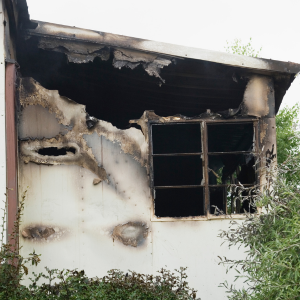
When listing a fire-damaged Virginia house, numerous considerations must be considered. First and foremost, examine the damage and determine what repairs are needed to make the property habitable. Contractors, insurance adjusters, and other professionals may be needed to determine the scope and expense of the job. Homeowners must also evaluate their insurance policy to understand coverage and how it may affect selling.
Also, examine how fire damage may affect the home’s value. According to the extent of the damage, the property may need to be sold “as-is” at a steep discount or renovated before being listed. In either instance, price the home competitively to attract project-minded buyers. A comparative market analysis may help decide the listing price range.
Additionally, homeowners should report all fire and damage facts to potential buyers. While legally mandated, transparency can also develop confidence and set realistic expectations. Repair estimates, insurance claims, and pre-fire images might show the property’s history and needed work.
Finally, Virginia fire-damaged homeowners must engage with a real estate professional who is familiar with these unusual situations. A skilled specialist can assist you in navigating the complex legal and financial issues of selling and marketing the property to the suitable buyer demographic. Homeowners can improve their chances of selling and moving forward by preparing and addressing all potential issues.
Mistakes To Avoid When Selling A House With Fire Damage In Virginia
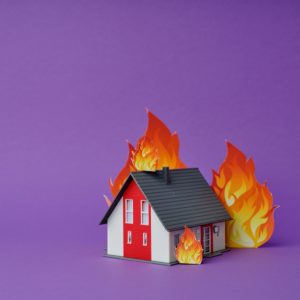
If you’re trying to sell a house in Virginia with fire damage, it’s important not to make these common mistakes, which can slow down the process or cause the price to drop. Not being honest about the fire damage from the start is one of the biggest mistakes that can be made. People who want to buy a house in Virginia will want to know how bad the damage is, what fixes have been made, and what work still needs to be done. Trying to hide or play down the damage from the fire will only hurt trust, which could cause the sale to fall through later on.
Another mistake people make is not getting the house inspected and evaluated properly before putting it on the market. People who want to buy will want to see professional reports explaining how the fire affected the building, its structural integrity, and any possible safety risks. Don’t skimp on these reviews; they could lead to unpleasant shocks. Also, homeowners should be careful not to set the price too high, even after fixes. Since the fire damage will still lower the home’s market value, asking too much will turn off serious buyers in Virginia. Lastly, it’s important to ensure you have all the permits and paperwork you need before starting any building or remodeling work. Not having these papers can raise red flags and make the sale more difficult.
By avoiding these common mistakes, Virginia homeowners whose homes have been damaged by fire can make the selling process go more smoothly and quickly.
Hiring A Professional Inspector For An Accurate Evaluation Of Fire Damaged Home In Virginia
Hiring a professional inspector to evaluate a fire-damaged property in Virginia thoroughly is an important step for homeowners who want an accurate estimate of the extent and severity of the damage. These highly trained professionals have the particular knowledge and tools required to thoroughly inspect every inch of the property, identifying all areas affected by the fire.
A professional inspector looks for hidden damage in electrical systems and plumbing and the structural integrity of load-bearing walls and beams. They will also inspect the home’s roof, windows, and doors for warping, cracking, or other flaws that could jeopardize the building’s weather resistance and security.
Furthermore, these inspectors are skilled in detecting the presence of smoke, soot, and other fire residues that may have permeated deep into materials and surfaces, posing long-term health risks if not appropriately addressed. With their acute eyes and technical experience, they can give Virginia homeowners a complete report outlining the repairs required to return the property to a safe living condition. This degree of in-depth study is vital for establishing accurate cost estimates, leading the reconstruction process, and substantiating insurance claims, all of which are critical for restoring a fire-ravaged property to its pre-incident condition.
This information applies to Virginia and its cities, including Alexandria, Fairfax, Richmond, and more. For assistance or questions, please call us at (804) 376-8771. You can also visit our website at Cash For Houses Girl for more details.
